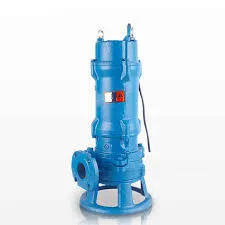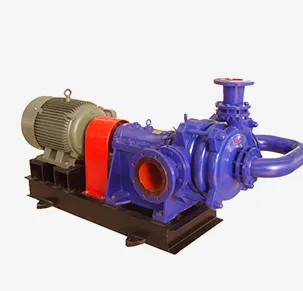TEL:
+86 13120555503
Marathi
- Afrikaans
- Albanian
- Amharic
- Arabic
- Armenian
- Azerbaijani
- Basque
- Belarusian
- Bengali
- Bosnian
- Bulgarian
- Catalan
- Cebuano
- Corsican
- Croatian
- Czech
- Danish
- Dutch
- English
- Esperanto
- Estonian
- Finnish
- French
- Frisian
- Galician
- Georgian
- German
- Greek
- Gujarati
- Haitian Creole
- hausa
- hawaiian
- Hebrew
- Hindi
- Miao
- Hungarian
- Icelandic
- igbo
- Indonesian
- irish
- Italian
- Japanese
- Javanese
- Kannada
- kazakh
- Khmer
- Rwandese
- Korean
- Kurdish
- Kyrgyz
- Lao
- Latin
- Latvian
- Lithuanian
- Luxembourgish
- Macedonian
- Malgashi
- Malay
- Malayalam
- Maltese
- Maori
- Marathi
- Mongolian
- Myanmar
- Nepali
- Norwegian
- Norwegian
- Occitan
- Pashto
- Persian
- Polish
- Portuguese
- Punjabi
- Romanian
- Russian
- Samoan
- Scottish Gaelic
- Serbian
- Sesotho
- Shona
- Sindhi
- Sinhala
- Slovak
- Slovenian
- Somali
- Spanish
- Sundanese
- Swahili
- Swedish
- Tagalog
- Tajik
- Tamil
- Tatar
- Telugu
- Thai
- Turkish
- Turkmen
- Ukrainian
- Urdu
- Uighur
- Uzbek
- Vietnamese
- Welsh
- Bantu
- Yiddish
- Yoruba
- Zulu
Telephone: +86 13120555503
Email: frank@cypump.com
फेब्रुवारी . 17, 2025 12:08 Back to list
septic pumps
For homeowners relying on septic systems, understanding the cost and value of septic pumps is essential for maintaining a well-functioning and efficient system. Septic pumps are crucial components in systems where gravity alone cannot facilitate wastewater flow. Their role is vital in preventing backups and ensuring that sewage is processed adequately, making the cost of these pumps an important consideration for homeowners. Here's a deep dive into what influences septic pump costs, and why investing in quality equipment is beneficial.
Homeowners should also consider maintenance as a crucial component of the septic pump cost. Regular maintenance extends the life of the pump, preventing issues that can lead to costly repairs. Simple checks, like inspecting the system for blockages or ensuring the float switch functions correctly, can preserve the pump's condition and prevent failures. Annual professional inspections are also advisable, allowing experts to spot potential problems early, mitigating expensive emergencies. For those concerned about environmental impact and energy costs, investing in energy-efficient pump models can yield long-term savings. These pumps minimize power consumption while maintaining effective wastewater management, offering an eco-friendly solution for sustainable home management. Choosing the right septic pump involves more than just considering the initial purchase and installation cost. It requires a comprehensive evaluation of the system’s needs, the pump’s longevity, and potential long-term savings from investing in a robust, reliable system. While the upfront costs might seem significant, the peace of mind that comes from knowing your home's wastewater management system is efficient and reliable is invaluable. In conclusion, understanding septic pump costs involves considering the type of pump needed, the brand and model, installation fees, and ongoing maintenance expenses. Homeowners should prioritize quality and reliability, engaging with trusted brands and experienced professionals to maximize their investment, protect their home, and ensure a seamless, efficient waste management system. Balancing short-term expenses with long-term reliability is key to making the most out of every dollar spent on septic system management, safeguarding both the home and the environment.


Homeowners should also consider maintenance as a crucial component of the septic pump cost. Regular maintenance extends the life of the pump, preventing issues that can lead to costly repairs. Simple checks, like inspecting the system for blockages or ensuring the float switch functions correctly, can preserve the pump's condition and prevent failures. Annual professional inspections are also advisable, allowing experts to spot potential problems early, mitigating expensive emergencies. For those concerned about environmental impact and energy costs, investing in energy-efficient pump models can yield long-term savings. These pumps minimize power consumption while maintaining effective wastewater management, offering an eco-friendly solution for sustainable home management. Choosing the right septic pump involves more than just considering the initial purchase and installation cost. It requires a comprehensive evaluation of the system’s needs, the pump’s longevity, and potential long-term savings from investing in a robust, reliable system. While the upfront costs might seem significant, the peace of mind that comes from knowing your home's wastewater management system is efficient and reliable is invaluable. In conclusion, understanding septic pump costs involves considering the type of pump needed, the brand and model, installation fees, and ongoing maintenance expenses. Homeowners should prioritize quality and reliability, engaging with trusted brands and experienced professionals to maximize their investment, protect their home, and ensure a seamless, efficient waste management system. Balancing short-term expenses with long-term reliability is key to making the most out of every dollar spent on septic system management, safeguarding both the home and the environment.
Share
Latest news
-
ISG Series Vertical Pipeline Pump - Industrial Fluid Handling | Chi Yuan Pumps
NewsAug.05,2025
-
ISG Series Vertical Pipeline Pump - Chi Yuan Pumps Co., Ltd.|Compact Design&Energy Efficiency
NewsAug.05,2025
-
ISG Series Pipe Pump - Chi Yuan Pumps | High Efficiency, Low Noise
NewsAug.05,2025
-
AI-Optimized Pipeline Pumps | Boost Efficiency
NewsAug.05,2025
-
Reliable Non-Clog Sewage Pumps with GPT-4-Turbo Tech
NewsAug.04,2025
-
High-Performance Air Pumps for Sand & Gravel | Efficient Transport
NewsAug.03,2025










